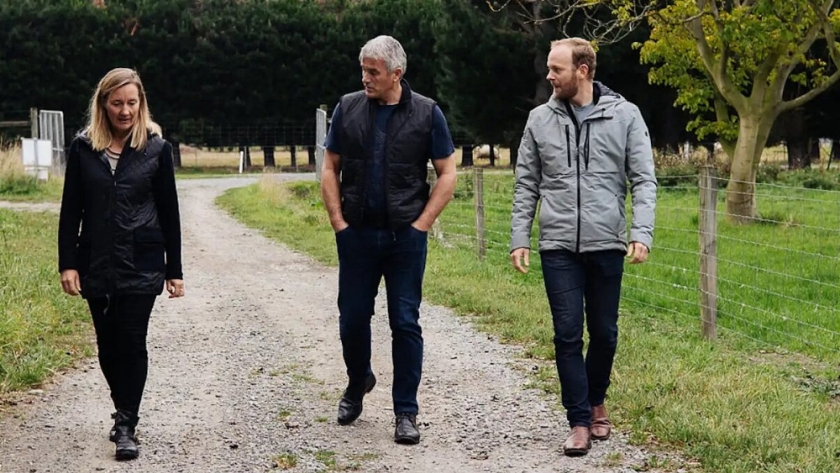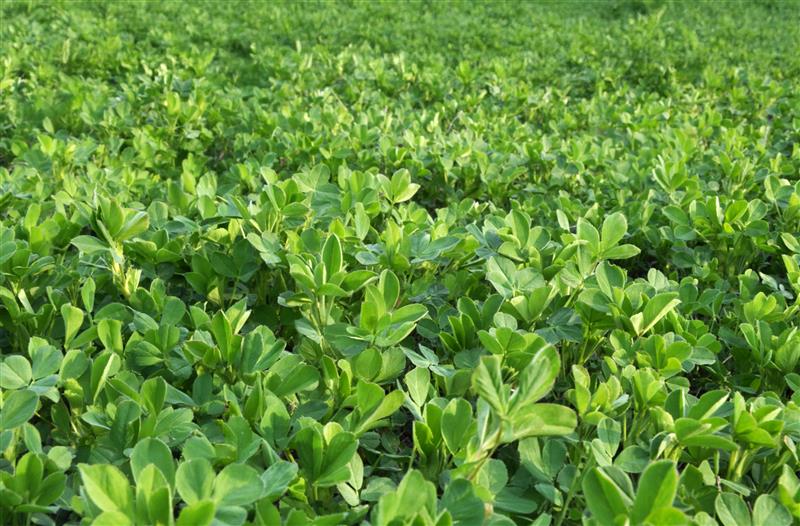
By Agroempresario.com
In a world where sustainable, high-quality proteins are becoming essential for food security and climate resilience, Leaft Foods is taking a bold step forward. The New Zealand-based startup has reached the commercial demonstration stage for RuBisCO, one of the most abundant and nutritionally complete proteins on Earth. This milestone puts Leaft at the forefront of a potential revolution in plant-based nutrition.
RuBisCO—short for ribulose-1,5-bisphosphate carboxylase/oxygenase—exists in every green leaf, from common alfalfa to aquatic duckweed. Known for its digestibility, amino acid profile, and functional versatility, RuBisCO has long been called the “utopia protein” by scientists and food innovators. Yet despite its promise, large-scale commercialization has remained elusive—until now.
The challenge with RuBisCO isn’t its quality; it’s accessibility. Found in only 1–5% of a leaf’s dry mass, extracting RuBisCO requires processing massive amounts of biomass. On top of that, its delicate structure means companies have just a narrow window after harvest to extract it without damaging its functionality.
Ross Milne, CEO of Leaft Foods and a chemical and process engineer, believes the company has solved this decades-old puzzle. “Everybody knows RuBisCO is the utopia protein,” Milne says. “But the question was always: can we isolate it in a desirable form at a price the market can sustain? We believe the answer is now yes.”
Founded in 2019 by John Leyland-Penno and Maury Leyland-Penno, Leaft Foods focuses on extracting RuBisCO from alfalfa, a crop prized for its high productivity, deep-rooted water efficiency, and nitrogen-fixing capabilities. According to Milne, Leaft is already producing tens of tons of RuBisCO-rich material per month and will scale up to hundreds of tons within the coming months.
Its protein concentrate boasts over 80% purity, exceptional emulsifying and gelling properties, and a neutral flavor—qualities that make it suitable for everything from sports drinks to bakery goods.
Leaft is also marketing Leaft Blade, a branded consumer product aimed at performance athletes in New Zealand and the US. “We see this as a dual strategy,” Milne explains. “Our B2B focus ensures large-scale adoption, while our consumer brand educates people directly about the benefits of RuBisCO.”
Leaft’s choice of alfalfa as its primary feedstock is strategic. “It’s perennial, stays in the ground for years, and can yield 18 tons of dry matter and nearly six tons of protein per hectare annually,” Milne notes. The plant’s fibrous material—cell walls and lignin—is used for ruminant feed, ensuring zero waste from the production process.

This approach supports Leaft’s vision of a profitable and scalable protein business while maximizing sustainability. By commercializing all co-products, from fibers to plant juices, the company reduces waste and diversifies its revenue streams.
Leaft Foods has already achieved self-GRAS (Generally Recognized as Safe) status for the US market and is partnering with large multinationals and agile food companies to bring RuBisCO into dairy and bakery applications. While details remain confidential, Milne says consumers could see RuBisCO-based products on shelves within the next 12 months.
From the outset, Leaft aimed to be cost-competitive with established animal proteins like whey protein concentrate. This price parity, combined with RuBisCO’s superior digestibility and sustainability credentials, could open doors to a massive global market.
To date, Leaft Foods has raised $20 million in equity from investors including Khosla Ventures and the ACC Climate Change Impact Fund, alongside substantial non-dilutive funding from the New Zealand government. This capital infusion supports scaling operations, refining extraction technologies, and expanding partnerships in international markets.
Globally, other companies such as US-based Plantible are also chasing the RuBisCO opportunity. While Plantible grows duckweed and operates a large Texas facility, Leaft’s model relies on contracting with farmers for raw material. This agricultural partnership model aligns with the company’s mission of integrating into existing farming systems rather than displacing them.
The road to RuBisCO commercialization has been paved with failures. Florida’s Lemnature AquaFarms filed for bankruptcy in 2023 after struggling to scale. Leaft’s advantage lies in its efficient fractionation process, which not only isolates RuBisCO but also finds profitable uses for every part of the plant.
Milne believes the coming decade will see RuBisCO mentioned in the same breath as whey protein, with wide recognition among consumers and formulators. “Right now, most people haven’t heard of it. But with its nutritional profile, functional capabilities, and sustainability, it’s only a matter of time.”
Leaft’s long-term vision extends beyond alfalfa. The company has trialed extractions from other leafy crops, maintaining flexibility to adapt to market needs and climate conditions. Its core fermentation and processing technology can be applied to a range of crops, opening opportunities for diversification.
As climate change and population growth strain traditional protein sources, RuBisCO could offer a scalable, low-carbon alternative that competes directly with animal proteins in both performance and cost. “This is about creating a resilient food system,” Milne emphasizes. “One that works for farmers, for industry, and for the planet.”
